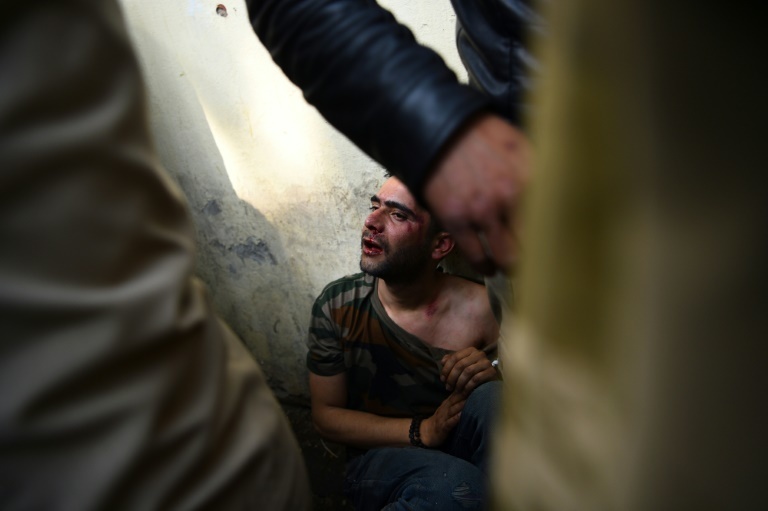
Junaid Ayub Rather cowered alongside 30 other students in a small room for two nights while mobs chanted for their blood outside, before finally escaping the rage sweeping India after last week's suicide bombing in occupied Kashmir.
Similar scenes have played out across the nation as Kashmiris living away from home flee violent reprisals following last week's attack in occupied Kashmir's Pulwama area, which killed more than 40 Indian paramilitary soldiers. Amnesty India has asked Indian government authorities to ensure that "ordinary Kashmiri women and men do not face targeted attacks, harassment and arbitrary arrests" as tensions simmer in the aftermath of the bombing.
Rather said angry crowds gathered outside hostels and apartments rented by Kashmiri students in Dehradun, north of New Delhi, shouting for the “traitors” and “terrorists” hiding inside to be shot. “It took us four days to reach home in Kashmir with some help from police and a Muslim businessman,” Rather, who had lived in the northern city for two years, told AFP after reaching his home south of Srinagar.
“Thirty of us slept in one room for two nights before we could mobilise help to flee.”
The businessman let them take refuge in his home until buses could be organised to get them to safety.
Around 11,000 Kashmiri students enrol at Indian universities outside their home state each year. Many are now clamouring to return home to a region battle-scarred by 30 years of civil war, fearing violent attacks if they stay. Video footage of Kashmiris being beaten and taunted in Indian cities has been widely shared on social media, while rightwing Hindu groups and pundits on TV news channels have encouraged reprisals.
A professor from New Delhi's Jawaharlal Nehru University, Amita Singh, this week publicly called for the execution of 40 Kashmiris to avenge the suicide bombing, while two other colleges announced they would no longer accept students from the territory.
Distress calls
More than 500 students, along with 100 businessmen, have already arrived back in Kashmir to flee a “climate of fear and intimidation across India”, said Kashmir Traders and Manufacturers Federation chief Mohammad Yasin Khan.
More were on their way, he told AFP. “We are continuously receiving distress calls from all kinds of people asking for help,” Khan said.
Some Kashmiri students have also been suspended by Indian universities for allegedly posting insensitive comments on social media about the suicide attack, while others have been arrested on sedition charges. India's interior ministry has ordered state governments to protect Kashmiri students — but several political leaders have also stoked aggressive anti-Kashmir sentiment since the bombing.
“Don't visit Kashmir ... boycott everything Kashmiri,” Meghalaya state governor Tathagata Roy wrote on Twitter.
More than 500,000 Indian troops are stationed in occupied Kashmir. Last week's suicide attack was claimed by Jaish-e-Mohammad (JeM) — which is banned in Pakistan and listed as a terrorist organisation.
India, however, has accused Islamabad of giving official backing to Kashmiri fighters as well as JeM.
Soon after the attack, Indian Prime Minister Narendra Modi — who faces an election in the coming months and is under pressure to take a tough stand on militants — promised those responsible for the bombing “will pay a heavy price”.
On Tuesday, Prime Minister Imran Khan said that Islamabad would take action if Delhi shares any actionable evidence concerning last week's suicide bombing.
While offering cooperation and another chance at a dialogue over the Kashmir issue, the premier also warned India against any act of aggression, saying Pakistan will not hesitate in retaliating to a provocation.













































